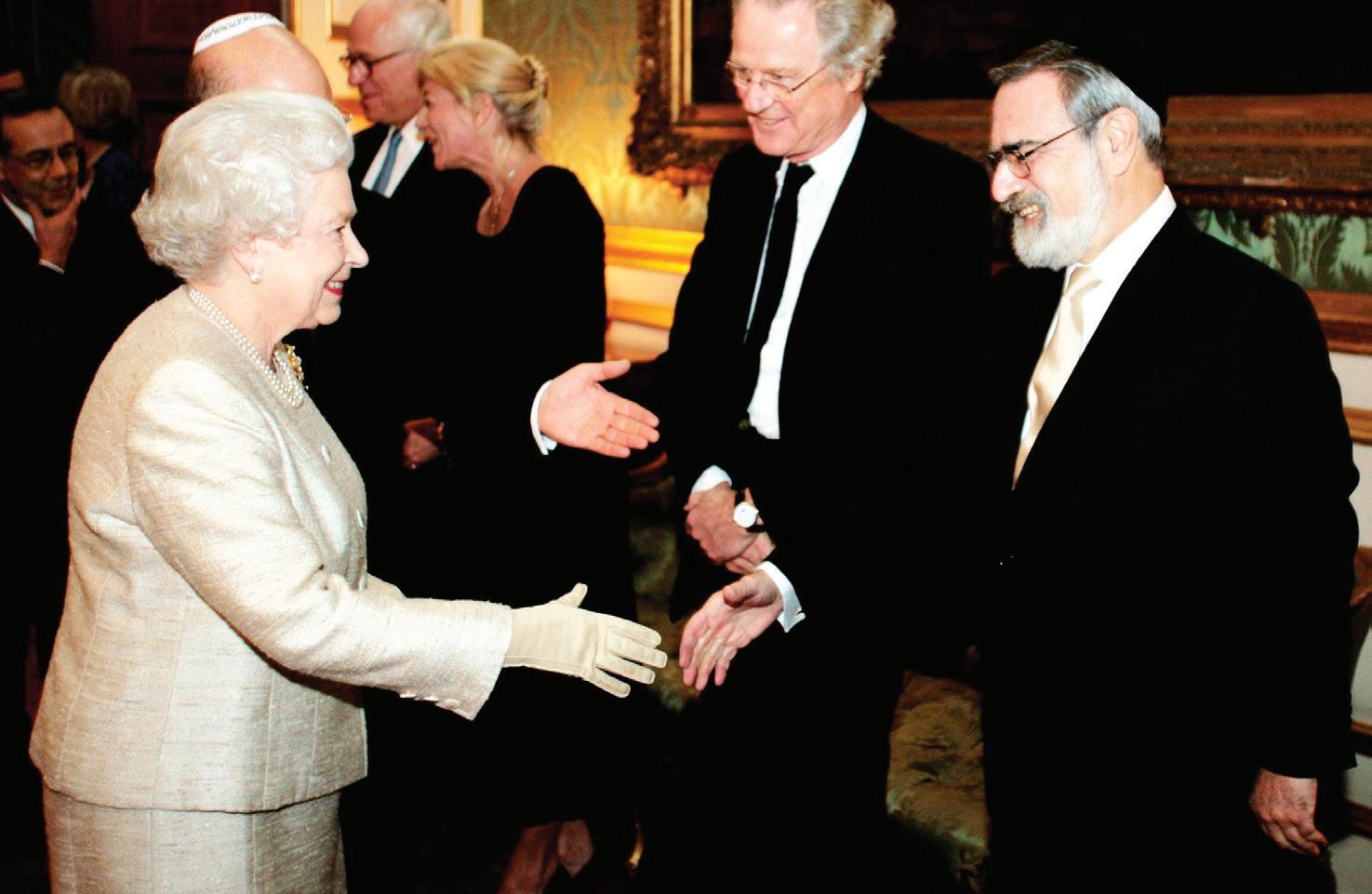
1 minute read
Queen Elizabeth mattered. Civil religion explains why.
ANDREW SILOW-CARROLL | JTA
Iam one of those people who gobble up films and television shows about the royal family almost as soon as they come out. And yet, watching “The Crown,” my thoughts would run like this: “This is great television,” I would say after nearly every episode. “But remind me again why I should care what happens to these people?”
Advertisement
I’ve heard that befuddlement from a lot of friends in the wake of the outpouring of love and sadness that followed Queen Elizabeth’s death at 96 after a 70-year reign. A monarch with no power, a matriarch of a family with no real claim to fame other than their birthrights, she occupied a strange and unique position.
The media strategist Mik Moore captured that perplexity in a Facebook post.
“There seems to be a disconnect [between] those who see the queen as a ceremonial figure with no real power and those who see the queen as the head of a colonial empire who was complicit in oppression and genocide,” he wrote. “If she’s the latter she deserves to be held accountable and if she’s the former she [is] just a celebrity with a crown.
“If she’s just a celebrity… her death isn’t that important,” he continued. “If she had real power, her death IS important … but also it means the anger at her is justified.”
A number of pundits and historians took a stab at explaining why Elizabeth, and the British monarchy, matter. Historian
Amanda Foreman Elizabeth said she “embodied what you might call the spirit of the nation” and “personified the essence and values of Great Britain.” Similarly, the current chief rabbi of the United Kingdom, Ephraim Mirvis, eulogized the queen by saying she “embodied the most noble values of British society.”
Rabbi Jonathan Sacks, Mirvis’ predecessor, had at one point praised Elizabeth as an interfaith champion, saying her meetings with faith leaders led the U.K.’s transformation into “a multiethnic, multifaith society.”
Sacks, Foreman and Mirvis suggest a few ways of thinking about Elizabeth beyond Mik’s dichotomy — as neither “ceremonial figure” nor culpable head of a colonial empire. As Sacks explained, Elizabeth wielded a kind of soft power by dint of her example, leveraging her ambiguous status to become “Defender of all Britain’s Faiths.”
Foreman and Mirvis, meanwhile, remind us that public figures can “embody” and “personify” values even when they aren’t elected or hold any real power. Elie Wiesel comes to mind. Although he was a gifted writer, his most important role was as an articulate survivor and witness to the Holocaust. When Wiesel died in 2016, at age 87, the grief was not just over the loss of one man, but of a living connection to a monumental and devastating historical event.
With Wiesel’s death, Jewry also lost









